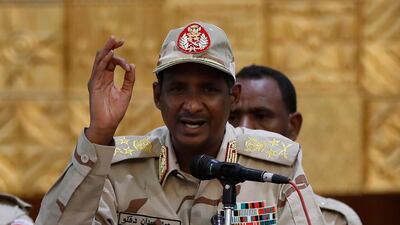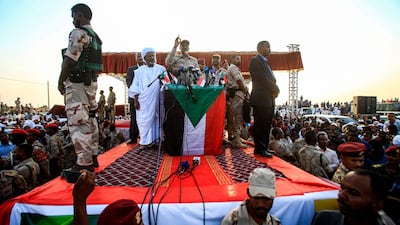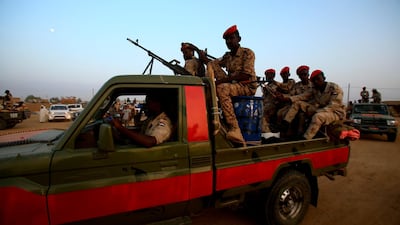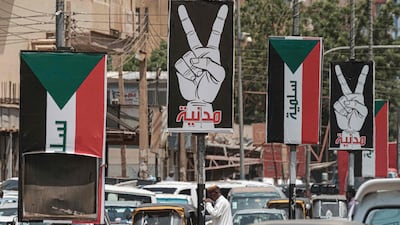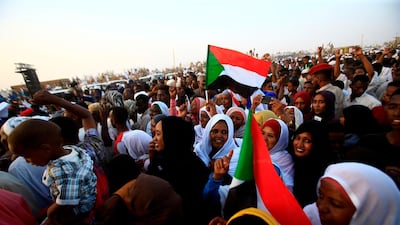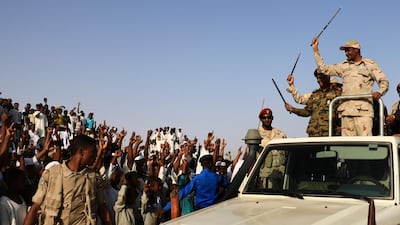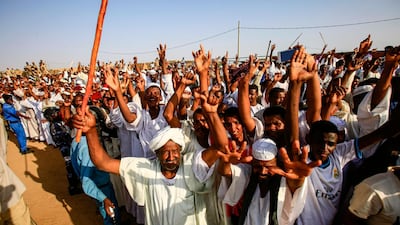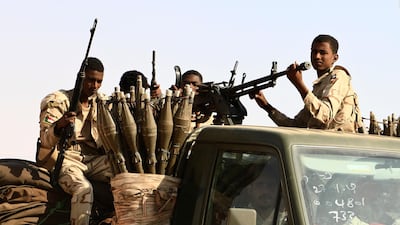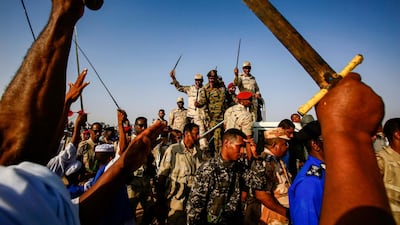A top Sudanese general said yesterday that he would execute anyone found responsible for killing protesters after June 3, when security forces moved to break up a sit-in outside the headquarters of the armed forces in Khartoum.
“We are working hard to take those who did this to the gallows,” said Lt Gen Mohamed Dagalo, deputy chairman of the Transitional Military Council that took charge after the military toppled president Omar Al Bashir.
He pledged that whoever committed any wrongdoing would be held accountable.
Mr Al Bashir, 75, Sudan’s authoritarian ruler of 29 years, made his first public appearance since he was ousted from power and detained shortly after.
He was shown by Al Arabiya television in a traditional white robe and turban as he was led to a prosecutor’s office for questioning on charges of money laundering and illegal possession of foreign currency.
Gen Dagalo also deepened the rift between the military council and protest leaders.
He suggested in a televised address that an agreement reached by the two sides on a transitional legislature no longer stood, including on the composition of the chamber.
The two sides had agreed before their negotiations collapsed after the break-up of the sit-in that the umbrella group of political parties and trade unions representing protesters – the Forces of Freedom and Change – would take two thirds of the chamber’s 300 seats.
It was to be an acknowledgment of the group’s pivotal role in four months of street protests against Mr Al Bashir.
Gen Dagalo has been the most among the generals in his stance towards the protest leaders, questioning the extent of their representation and calling them foreign agents.
He has been keen to counter the weight of the mostly liberal and secular leaders. In a televised address on Saturday, he spoke of plots hatched against Sudan, attempts to sow sedition in the country and foreign envoys in Sudan to destroy it.
The Rapid Support Forces, a paramilitary force whose origins are in a tribal militia in the western Darfur region, are widely blamed by activists and witnesses for the killing of scores of protesters in the raid on the camp and in the crackdown that followed.
A doctors’ group associated with the protest movement said more than 100 people were killed, including 40 whose bodies were thrown into the Nile before members of the forces retrieved them and took them to an unknown destination.
Authorities say only 61 were killed and the Transitional Military Council ordered an investigation into the violence.
The generals said an unspecified number of arrests were made, but gave no detail.
A spokesman for the military council said yesterday that it did not order the dispersal of the sit-in and that the intention was to purge an outlying part of the sit-in area called Colombia.
But they said the deaths occurred as a result of field commanders not sticking to the plan.
Brig Abderrahim Badreddine, spokesman for the investigative committee, said initial findings showed “officers and soldiers of different ranks from regular forces entered the sit-in without any orders from their superiors”.
“They were not part of the troops who were ordered to clean Colombia,” Brig Badreddine told state television.
The US assistant secretary of state for Africa said survivors of the violence told him stories about the raid on the encampment.
He spoke of “murder, rape and pillaging” during the crackdown and called for an independent and credible investigation.
Gen Dagalo’s assertion yesterday that capital punishment awaited anyone found responsible for the violence appeared to be a response to growing calls for an international investigation, something that the generals have already rejected.
The Rapid Support Forces fought rebels in Darfur in the 2000s on behalf of Mr Al Bashir’s government. Its members have been blamed for a range of war crimes as it suppressed the rebellion.
Mr Al Bashir has been indicted by the International Criminal Court for crimes against humanity and genocide during the Darfur conflict.
Before the June 3 violence, negotiations between the protest leaders and the military council foundered over the composition and leadership of a proposed council to operate as a collective head of state.
Both wanted leadership and majority of the interim council.
